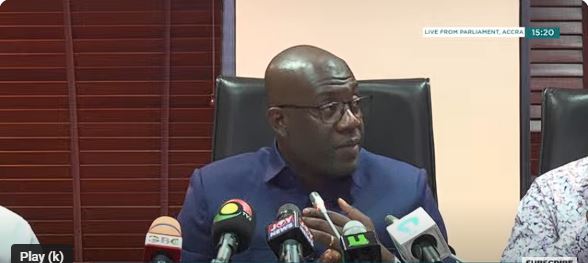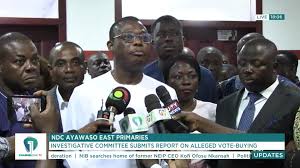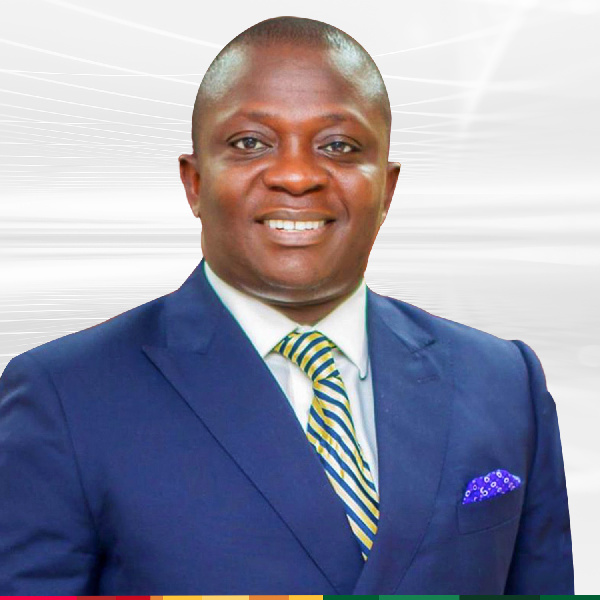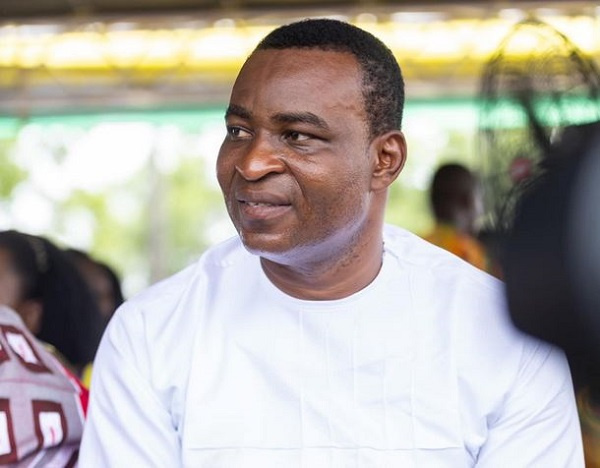By Francis Kobena Tandoh
The Minority Caucus in Parliament on Monday criticised the John Mahama administration over the passage of the GH₵1-per-litre levy on petroleum products, describing it as “midnight robbery” against Ghanaians.
Member of Parliament for Ofoase Ayirebi and Ranking Member of Parliament’s Economy and Development Committee, Kojo Oppong Nkrumah described the manner of passage as deeply troubling.
According to him, the levy was sneaked through Parliament without proper transparency, public consultation, or notice, unlike previous taxes such as the E-Levy, which were openly debated.
“The E-Levy was advertised in the budget and followed up with town hall meetings, and it underwent extensive public consultation before the bill was finally passed in Parliament. This fuel levy was smuggled through to avoid any form of engagement, consultation or scrutiny,” said Oppong Nkrumah.
He added, “It was neither advertised in the budget nor on the main order paper for the day. That is why we say that this amounts to midnight robbery. The E-Levy had an effective rate of 1% per transaction, yet it was described as pickpocketing. This dumsor levy has the effective effect of 8% per transaction, which is why we say that it is midnight robbery.”
The former Information and Works and Housing Minister further emphasized that effect of the new levy on the people is dire compared to the E-Levy.
“While the E-Levy had a cascading effect, this dumsor levy has a total over 100% cascading effect because it affects transportation and consequently any item that is transported. The E-Levy was designed to yield approximately GHS2 billion from persons who elected to do transfers or transactions. This government is taking GHS5.6 billion from the pockets of Ghanaians, and we think it is very dishonest,” he added.
The Ghanaian Parliament passed the Energy Sector Levy (Amendment) Bill, 2025, on June 3, introducing a GH₵1 additional charge on every litre of fuel.
The government expects to raise GHS5.7 billion through the levy to support energy sector debt payments and purchase thermal fuel for power generation.
Finance Minister Dr. Cassiel Ato Forson recently revealed that Ghana owes $3.1 billion in energy-related debts and needs an additional $3.7 billion to clear arrears, and $1.2 billion for fuel in 2025.
However, critics, including the Chamber of Oil Marketing Companies (COMAC), have warned the move could sharply raise fuel prices and deepen the cost-of-living crisis.
Following public backlash, the Ghana Revenue Authority (GRA) has postponed the implementation date from June 9 to June 16. Enditem
Source: Ghana Eye Report
Share Us



